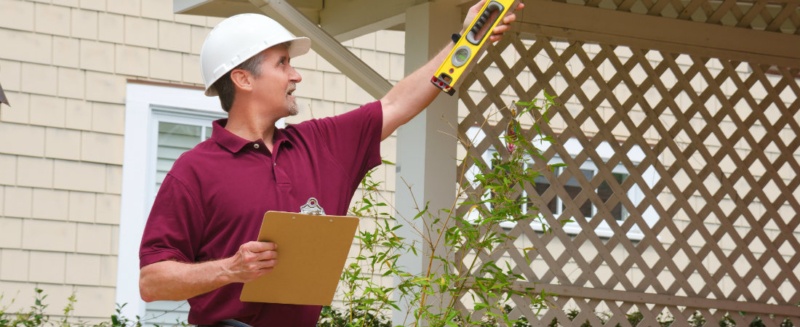What are the terms under which your professional home inspector is inspecting the house you want to buy? Liability caps on home inspections aren’t wrong, but good home inspectors should disclose this information before they’re paid.
Q: I was buying a house and hired a home inspector. We went through the whole inspection and I even paid him his fee. Then he gave me a form that indicated that he would not give me the written report unless I signed a document.
The document stated that I agreed that I could only get back the $400 I paid him in case there was a problem with the inspection or his report or I could pay him an extra $1,500 and the cap would be eliminated. Don’t you think that he should have told me this before I hired him? He’s a member of ASHI.
A: We think it is highly questionable that a home inspector would spring those terms on you so late in the game. ASHI stands for the American Society of Home Inspectors and they have a code of ethics. Among their code is a requirement for the home inspector to “act in good faith toward each client” and that ASHI inspectors should “avoid activities that harm the public, discredit themselves or reduce public confidence in the profession.”
We will address the waiver document in a moment, but we don’t think it is right or in good faith to give that sort of document to the customer after the inspector has been hired, after the inspector has been paid, and just before delivering the written report to the customer. In some ways it almost seems like the home inspector is holding the written report hostage, which we think violates the spirit of the ASHI code of ethics.
It doesn’t help the home inspector profession for a home buyer to feel taken advantage of or give the customer reason to believe that the home inspector might have failed to do the job the home inspector was hired to do after the inspector has been paid.
We believe home buyers should hire professional home inspectors and would encourage home buyers to hire home inspectors that are members of InterNachi (International Association of Certified Home Inspectors) or ASHI. These associations provide their members benefits and set certain standards for becoming members and also provide information and additional services to aid members in their home inspections.
Many home inspections cost between $400 and $750, depending on the size and type of home and the inspections required. At issue with your question is not the fee you paid, but the timing of the letter and the contents of the letter the home inspector wanted you to sign.
We think the home inspector should have made a better effort at describing the terms of service to you prior to your engaging the home inspector. Many home inspectors have great websites and many of them post their inspection agreement online for a prospective customer to view and read in advance. Other home inspectors will send the documentation to the customer at the time they schedule their inspection, and still others will deliver the documentation to the customer prior to getting paid.
Each of those options is better than requiring that a legal document be signed after the customer has paid the fee. In addition, we think it is wrong for the home inspector to tell the customer that the inspector will not produce the report unless the customer signs the form.
Now for the waiver form. We don’t believe that home inspectors can and will find all problems with a home. They are good at finding many and in some cases most problems with homes, but you can’t expect a person to uncover every problem a home might have. Some problems arise by surprise, other problems hide behind walls, and others are hidden by sellers, contractors or prior owners.
Good home inspectors are a great start to help a buyer evaluate the condition of a home, but a home inspection is not a guaranty that a home is free of problems. At issue is whether the home inspector has done a good job at evaluating those aspects of the home that can be observed and giving the buyer a reasonably accurate picture of the problems a home has or might have.
Given that home inspectors may not find everything wrong with a home, even if they are the best of the best, a customer may still decide to sue the home inspector. If a home inspector gets sued, the cost of defense and any fees will easily surpass the fee paid for the inspection. Home inspectors seek to limit their exposure by capping their liability. That cap might be the amount of the fee paid for the inspection, or it might be a flat amount that might be a round number of say $1,000 or $2,500.
In concept we don’t object to this limitation as long as the customer is aware of the terms and understands the limitation before the inspection takes place. That way the customer can decide whether to hire one home inspector over another if the customer believes the terms of service of one home inspector are better than another home inspector. But we believe that it is wrong for a home inspector to disclose the limitation after service has been performed and the buyer has paid the fee.







Leave A Comment